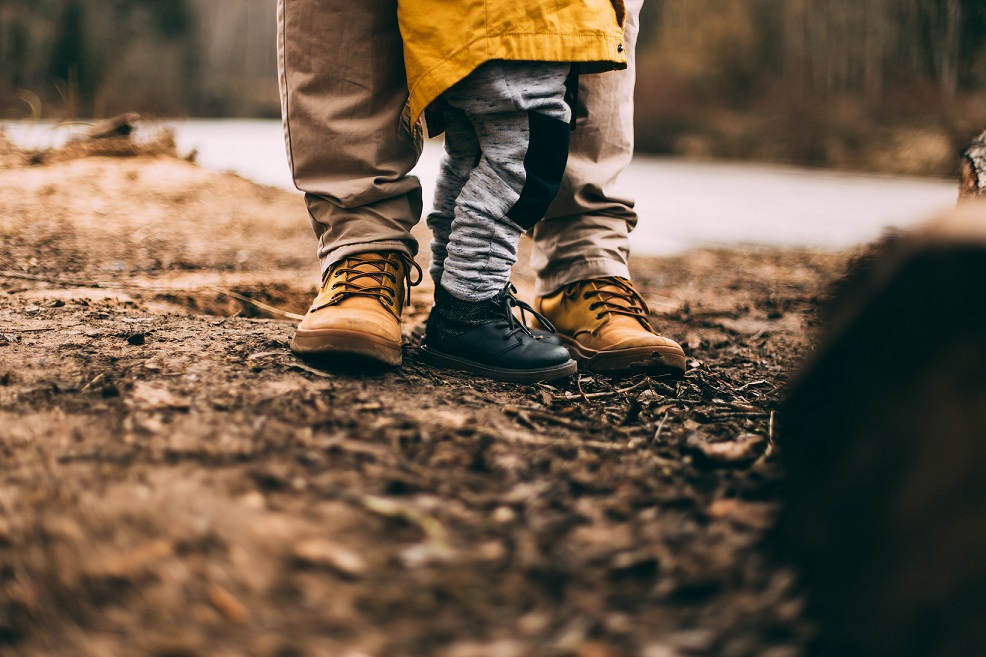By Mary Harrison, PhD, LICSW, IMH-E®
“How you are is as important as what you do.”
Jeree Pawl
Anyone caring for babies, toddlers, and preschoolers knows how intense the interactions can be. For young children, feelings are often big and unwieldy.
When times are uncertain and we feel under threat, we want to “do something.” We want to be proactive and reactive, to feel like we can make a difference, and somehow, to influence future outcomes. Parents and caregivers of young children feel a powerful pull towards protecting them from any harm.

Yet reflective practice reminds us that “how we are is as important as what we do,” as the renowned infant mental health scholar Jeree Pawl so aptly put it.
How. We. Are.
How are we?
In the infant and early childhood mental health field, reflective practice asks practitioners to explore their own thoughts and feelings, using them as data in their work. Reflective practice reminds us to check in with ourselves—with our bodies and our minds. How are we feeling? Where does our worry live? Which areas feel tight or constricted?
We may not even be aware of how our bodies are feeling or of how our emotions manifest themselves physically unless we deliberately pause to take stock. The regular intentionality of reflective practice helps us pause long enough to notice how we are.
It’s the same with our mental and emotional well-being. What are we thinking about? What are we focused on? How are we affected by what we are reading and thinking about?
And how are we—collectively, as individuals who exist in a web of relationships? Reflective practice encourages us to reach out to people we trust for reflective conversations. It reminds us that connecting with others helps us be our best selves, especially in times of crisis.
When we pause and notice how we are feeling within the context of a compassionate relationship, we realize how powerful our bodies and minds are in influencing the minutes and hours of our lives. We also notice that we have some control and influence over our bodies and minds. Observing is the first and most important step in assessing quality care for young children, so it makes sense that observing ourselves should come first.
Because of the need for “social distancing” to slow the spread of COVID-19, people around the world are now confronting the prospect of staying at home with children for an undetermined amount of time. They may be getting used to working from home. Or maybe they have been caring for children at home full time, but must grapple with new limits on where they can go and whom they can see. Faced with this “new normal,” we might want to jump into a strict schedule or fill our children’s days with developmentally appropriate opportunities for learning. But if we have forgotten to check in with ourselves and attend to how we are with others, we may not feel as good about the process or outcomes.
Daniel Siegel and Tina Payne Bryson have just published a book that teaches us to pay more attention to how we are: The Power of Showing Up: How Parental Presence Shapes Who Our Kids Become and How Their Brains Get Wired.
Anyone working with young children can replace the word “parental” with the term that best represents them: how a child care provider’s presence…a preschool teacher’s presence…a home visitor’s presence shapes who our kids become.
The key is “presence.” Our presence is how we are.
In these times of unprecedented crisis, our children are learning how to be from us. They are learning what worry looks like for adults and how to manage worry. They are observing all kinds of normal emotion expressions from the grown-ups who take care of them: irritability, panic, rage, numbing. If we can notice our own bodies and emotions, we gain the opportunity to teach emotion regulation skills in real time.
We can teach children that a “time out” can be a valuable chance to take some deep breaths and find a way to feel calmer. We can teach them that sometimes words and talking aren’t helpful; instead, connecting through a hug is where to start. We can teach them that we make mistakes. Sometimes, we are too loud or too angry or too worried or too checked out to be the kind of caregivers we really want to be. Reflective practice reminds us to pay attention to our own behavior. When we do that, we can own our reactions and repair our relationships. We can explain to our children that we, too, have a hard time sometimes and that we, too, are still learning how to manage our big feelings so that we do not seem “mean” or “scary.”
There is no finish line to this learning. We do not reach a certain age or have our children reach a certain milestone and then feel like we’ve got it down. Instead, as we weather ups and downs and brand-new crises, we can practice our skills again and again. The good news is that how we are as parents and caregivers is vitally important to the well-being of young children, and when we practice self-reflection within compassionate relationships, or even alone, we are “doing something” essential.



